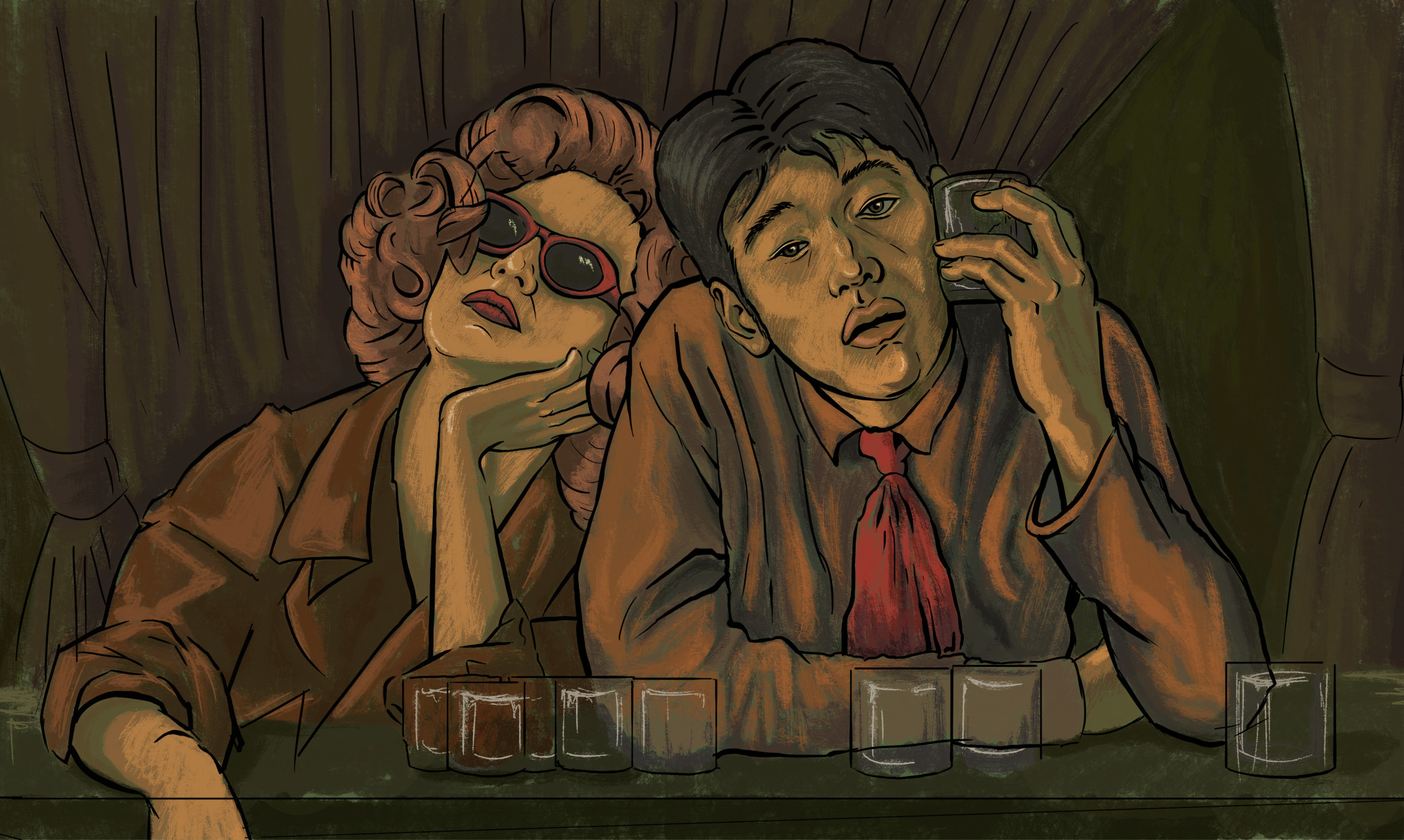 There is an inextricable relationship between poetry and nighttime. Our photoreceptors adapt to the shadowy patina that engulfs the world, causing our sensitivities and vulnerabilities, to increase. This turn to language (either reading it or writing it) at night, is a historic tradition that the media constantly tells us to monitor, limit, and control.
There is an inextricable relationship between poetry and nighttime. Our photoreceptors adapt to the shadowy patina that engulfs the world, causing our sensitivities and vulnerabilities, to increase. This turn to language (either reading it or writing it) at night, is a historic tradition that the media constantly tells us to monitor, limit, and control.
Poets seek refuge in this darkness that binds us all and it can generate many different results. We have Keats’ “Ode to a Nightingale,” Richard Pevear and Larissa Volokhonsky’s “Night Talk and Other Poems,” Ocean Vuong’s “Night Sky with Exit Wounds,” and coming out this month from Red Hen Press, Elise Paschen’s “The Nightlife.”
Like any warm-blooded humanoid, I judge a book by its cover; sorry, not sorry. I was attracted by the cover, which is a drawing of a peaceful, mountainous landscape, juxtaposed against a word like “nightlife,” which immediately brings to mind overpriced drinks and cover charges, popping a squat, and having your name mispronounced by a cult leader who really wants you to check out their new startup. When I started the collection, I immediately wanted to find where the peace-scape and slop-scape of night meet, or don’t.
Paschen, who has a penchant for form, explores an above ground view of night in many of the pieces, such as in her pantoum called “The Elevated”:
Rooftops, swap place
The sorrow, the sails
Retrace your face
Train on the rails
The essence of these lines course throughout the entire collection — the occupation of personal and strange domestic spaces, interpersonal darkness, intimacy, and the shadowing of our environment. These themes allow Paschen to move in and out of characters and places that are all frustrated by the anxiety of becoming, of being realized in full light.
A potent thread throughout the collection is “the husband” character and the “marriage of fractions” that is explored in private and public spheres. As seen in “The Marriage Bed,” an image that is referenced throughout, the bed is established as the primary space for the characters in this relationship to console, deceive, imagine, and create.
In the end, it all boils down to desire. “That the bee, before a sting, craves the sweet suck and sip of Venus-fruit.” Paschen’s book seems to asks, if we are all bees, how do we manage this fruit? How do we balance all of the nourishments of life in order to be able to help others grow and seek their own nourishment?
It is with this culminating question that the collection turns into day for the last section. But the sun doesn’t have all of the answers:
How sun arcs, crowns:
dashed gem- stone sheet,
bracelet of wave.
In this section, the sun seems to be constantly mitigated by water; it becomes a wash rather than a opening. In this logic, it acts in the same nature as nighttime, showing that there is knowledge to be discovered in the “arc” between night and day that Paschen so astutely points to. The slop-scape of night proves itself not to be failed hookups, but the changing waters that Pachen describes in “High Tide, Mid-Marriage” and “Stilt Cottage, Low Tide.” These waters surround us in the metaphorical landscapes of our lives and is the speaker’s task to learn how to make sense of the shifting ground below it.
In her previous collection, Bestiary, Paschen explored the nature of animals which she continues to do in “The Nightlife” but they are tied to this water as well, so again, she is proving that we are the animals that we display, domesticate, and dismantle. Ultimately, the book allows the reader to acknowledge the passing of night as the passage of pain, loss, and rapture in order to make room for new love and new life.
“The Nightlife” is available from Red Hen Press.








Shy town who would guess how much was reprint or theft red hen joke deal free MFA? You thinking it please do done
Poetry Whip Wolf
? Say
F. That Book ?⬅????